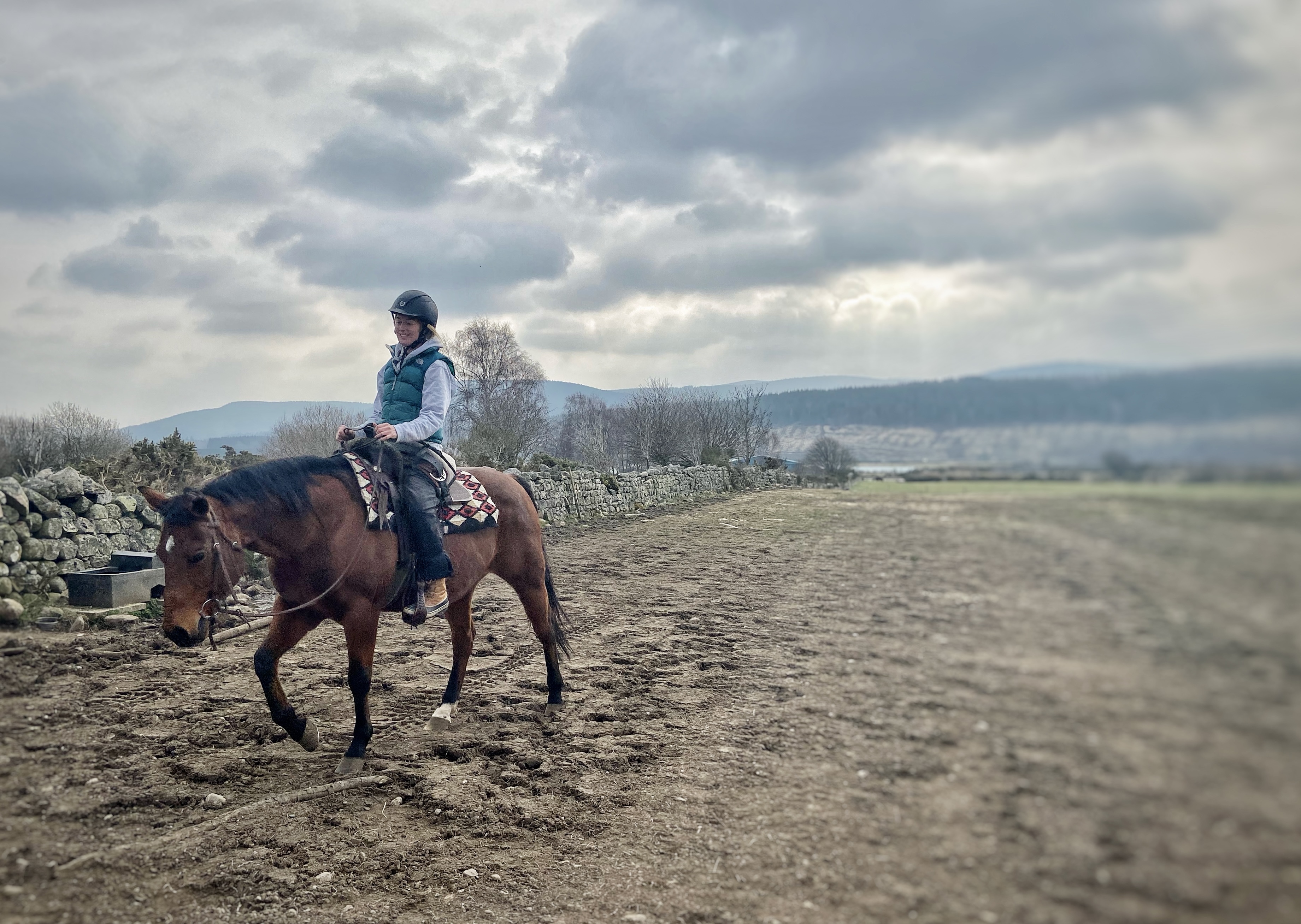
This morning, I drove down the valley and watched a woman who has lost the use of her legs ride a horse.
Often, when I write of something which moves me, I scatter adjectives around like confetti. One of my writing clients once said to me, ‘You never met an adjective you didn’t like.’ But the thing about this is that it would be diminished by anything ornamental. That sentence should stand alone, in all its plainness, because it says everything.
Of course, I can’t quite leave it at that. I want to tell you the story, but I will try to keep my usual flourishes out of it.
The place was HorseBack UK, a charity I work with. We put veterans with life-changing injury together with horses, to help the veterans on their road to recovery. We also use the horses to help local children who are having difficulties at school. And there’s a whole lot of other stuff too. But the point is that it started out with the idea of veterans helping veterans. The Royal Marine who set it up was thinking about soldiers getting blown up in Afghan, and he thought of how he would feel if he went from active and independent to being without a limb or in a wheelchair or reliant on the kindness of others. He thought: what if we could get them up on a horse, and out into the Scottish hills?
That was the original notion. It would be mobility with dignity.
From that tiny acorn, a mighty oak tree grew. The Marine and his wife started the charity and they damn well did get veterans who were missing legs and arms and all sorts into the saddle. Then they started to realise that a lot of the most pernicious wounds were on the inside, invisible to the world. So they moved into working with veterans with brain injuries and all kinds of mental trauma. The horses proved almost miraculous with this, provoking transformations that are hard to believe.
I came along and started to write the stories. That’s what I do for HorseBack: I am their voice. It’s something that means a vast amount to me and it gives me a sense of meaning and mission, which is the very thing that we try to return to our veterans. It is the thing they have lost, and they find it again in our Scottish hills.
What I loved about watching Cat on her horse was that it was going right back to that first principle. She was a theatre nurse and an athlete. She ran everywhere and she biked everywhere and then there was some random accident and there was no more running and no more biking. She could no longer walk. There is no feeling or movement in her legs.
Yet she is still there, in all her funniness and spirit and intelligence. We learnt early on to see the person, not the injury. I love that idea, and it’s amazingly easy to do, once you practise it a bit. I used to be afraid of people with physical injuries, because I was so terrified of saying the wrong thing. It was like that old Fawlty Towers panic of Don’t Mention The War. I had the acute British embarrassment of being patronising or using the pity voice or just generally putting my foot in it.
Then I spent nine years among veterans who take gallows humour to Olympic levels and I realised that I could say anything, because they did. Bits of them might be broken, but they were still people of complexity and character and depth. And really, really bad jokes. So now I see the person, not the damn chair.
All the same, I do have a certain awe for the courage and resilience and sheer bloody-mindedness of the people whom fate has taken behind the bike shed and duffed up. When I looked at Cat up on her horse, with the blue mountains behind her and the storm blowing in from the west, I did feel humble.
She was laughing her head off and her smile could light up the whole of Scotland and she looked down at me and said, ‘I’m in my happy place,’ and I thought how easy it would have been for her to fall into a state of rage and resentment and self-pity. She could have said, ‘Go out riding on a Quarter Horse? Are you joking?’ But she didn’t. She took the whole idea as a challenge, just as the HorseBack crew did. They were going to make this thing work if it was the last thing they did.
And what was even more touching was that her good old boy Nimits, who used to tear up the hill at top speed, went at his most stately, gentlemanly pace, carrying his precious cargo with care and grace. He wasn’t patronising her, any more than we would, but he did seem to sense that this human could do with his absolute best self, and that is what he gave her.
I do want an adjective now, but I can’t find any that are good enough. It’s enough that I record this, in ordinary language. I want to write it down because I want to remember. I want to keep that picture of the smiling woman and the gentle horse with me. Because it was absolutely bloody lovely.
